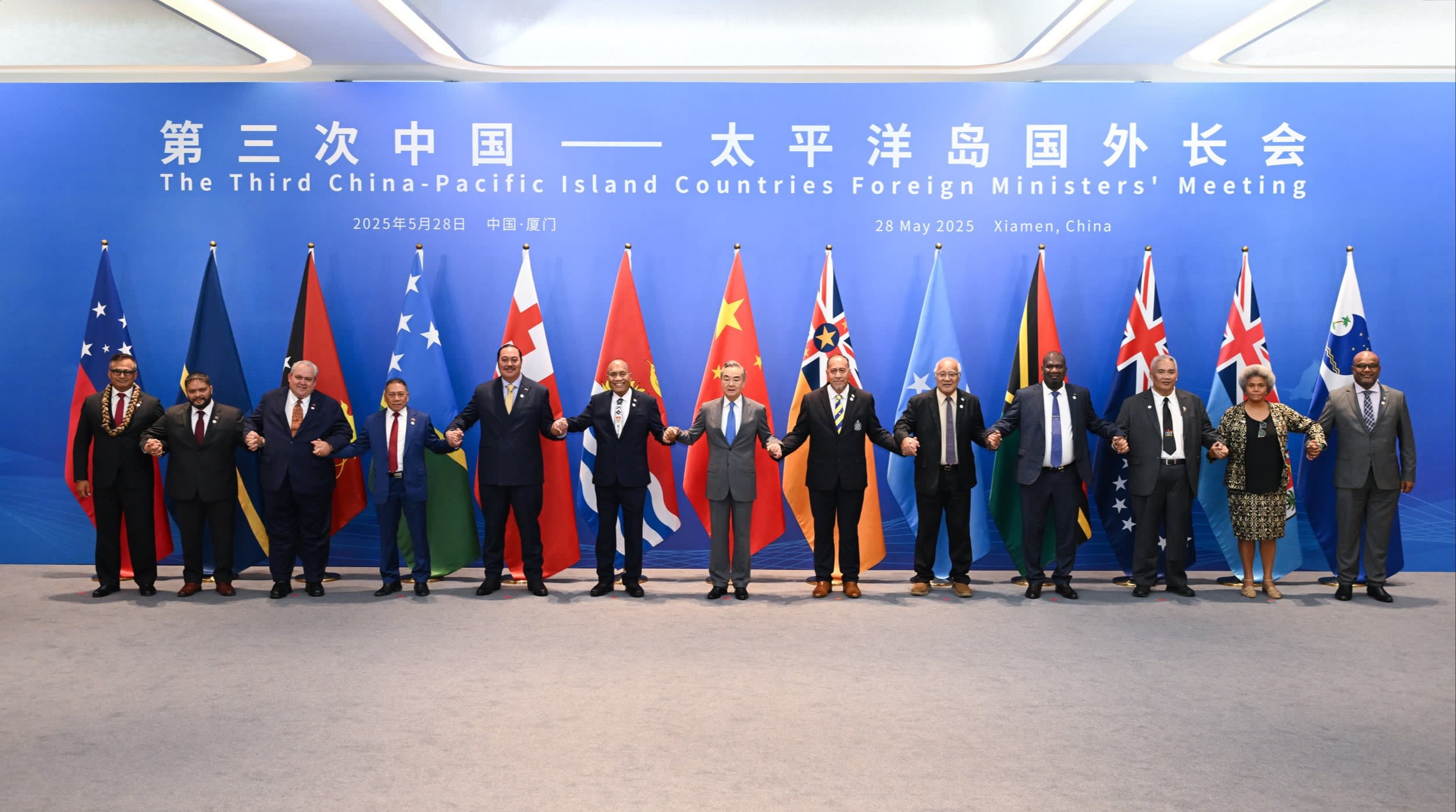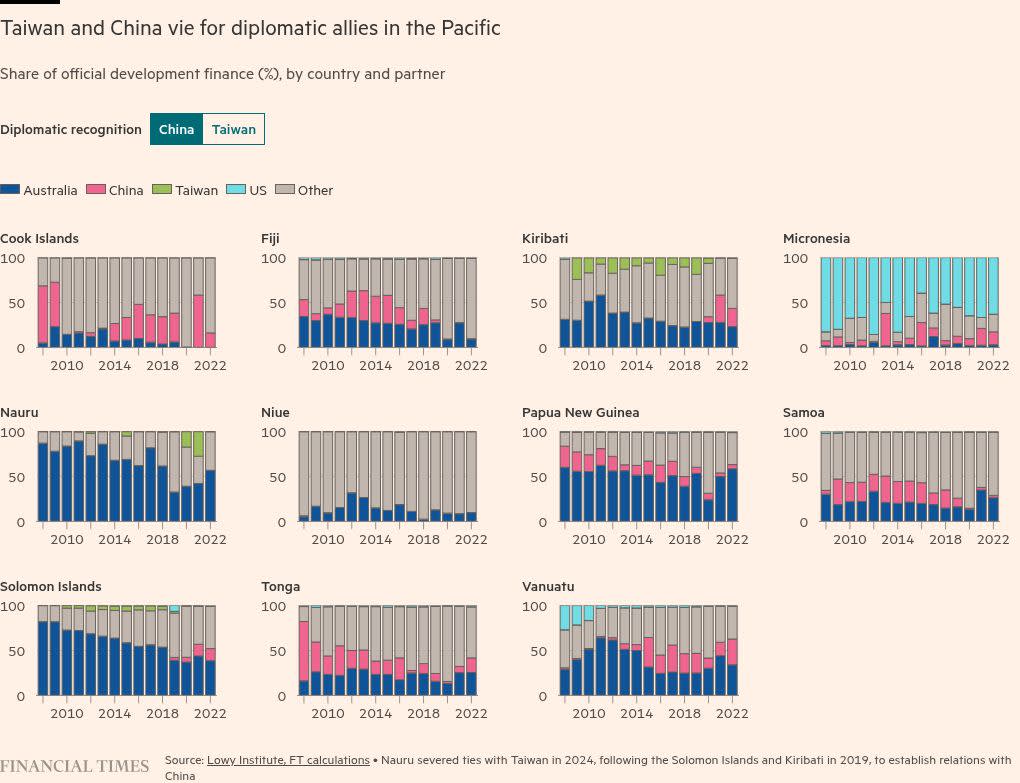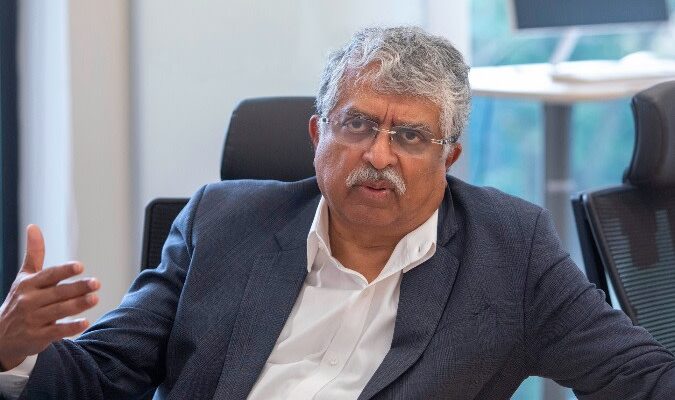Unlock the White House Watch newsletter for free
Your guide to what Trump’s second term means for Washington, business and the world
Pacific island leaders gathering in the Solomon Islands this week have adopted a novel strategy to prevent US-China tensions from overshadowing the region’s most important annual summit: inviting neither.
The Pacific Islands Forum — which brings together 18 countries ranging from tiny island nations Tuvalu and Niue to regional heavyweights Australia and New Zealand — has been dominated in recent years by an escalating competition for influence between China and western allies.
Pacific island countries have also been riven over recognition of Taiwan, over which Beijing claims sovereignty. Three of Taiwan’s 12 diplomatic allies — Palau, Tuvalu and the Marshall Islands — are in the Pacific, and Taipei is one of about 20 external partners to the PIF, sending representatives to its annual summits alongside countries such as the US, China and Japan.
That has caused friction in the past. At last year’s summit in Tonga, a communiqué was altered to remove references to Taiwan after vociferous complaints from Chinese diplomats present.
In a departure this year, host Solomon Islands has blocked all partners from attending. The decision has divided opinions in the region, with some Pacific politicians suggesting it was made under pressure from China in order to exclude Taiwan.
New Zealand’s foreign minister Winston Peters last month expressed concern that “outsiders” were dictating terms of the meeting to Pacific leaders. The region “will not like that”, he said.
Chinese diplomats have dismissed such claims as “misinformation”.
The Pacific has become a hotbed of geopolitical competition in recent years as China has sought to deepen security and economic ties across the region. The Solomon Islands switched diplomatic recognition from Taipei to Beijing in 2019, and signed a security and economic pact with China in 2022.
That has rattled the US and allies including Australia, New Zealand and France, prompting them to pledge hundreds of millions of dollars in investment in an effort to shore up ties with Pacific island nations.
The Solomon Islands said it limited this year’s guest list as part of an ongoing review of how the PIF operates. Next year’s meeting, which will be hosted by Palau, is expected to reverse the move.
But it nonetheless drew objections, with Tuvalu and Samoa threatening to boycott. Others, such as French Polynesia, supported the move, calling for the summit to be restricted to the PIF’s 18 member states to allow smaller nations to focus on their own agendas and save them from having to endure “lecturing” from larger partner countries.
Anna Powles, associate professor at the Centre for Defence and Security Studies at Massey University in New Zealand, said the decision to block partner states would remain the “elephant in the room”.
Limiting attendance “reduces the risks of a geopolitical circus” at the PIF, she said from Honiara, the capital of the Solomon Islands. “But the contested nature of what led to these circumstances remains of concern to some PIF members.”

The 2025 forum is expected to focus on the Pacific Resilience Facility, a financing mechanism to be used for disaster relief, as well as Vanuatu’s application to the International Court of Justice on climate change.
However, the biggest agenda item is expected to be the “Ocean of Peace” proposal from Fiji to develop guardrails for responding to strategic competition in the region. The plan aims to strengthen co-operation between smaller island nations to help them resist coercion.
“We must help our people understand because of our location, we are under constant threat,” Palau’s President Surangel Whipps Jr said at a conference in Hawaii ahead of the PIF. “I might venture to say we are already at war.”
“The best way to combat this is through partnership with like-minded nations,” he added.
Yet scepticism remains over whether small states will prioritise co-operation at the expense of sovereign interests, especially in the face of multimillion-dollar investments.
Vanuatu on Monday held off signing a long-planned, A$500mn (US$331mn) investment plan with Australia that the two sides had all but agreed last month over concerns it could prevent infrastructure deals with other countries, including China.
“There is a history of states departing from regional plans for bilateral self interest,” said Richard Herr at the University of Tasmania. “They need to put muscle on the bones of the proposal.”
Data visualisation by Haohsiang Ko in Hong Kong



